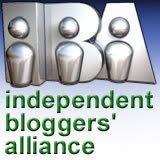 AAPP: There is a very good article in The Washington Post by E.J Dionne, Jr. asking a hard question about who else: The Rev. Jeremiah Wright. The question raised in the article: Is he, Jeremiah Wright, as far outside the African American mainstream as many(um) whites would like to think?
AAPP: There is a very good article in The Washington Post by E.J Dionne, Jr. asking a hard question about who else: The Rev. Jeremiah Wright. The question raised in the article: Is he, Jeremiah Wright, as far outside the African American mainstream as many(um) whites would like to think?WAPO's E J Dionne writes, "Because Barack Obama's speech on race in America was so candid about both the legitimacy of black and white grievances -- and the flaws in those grievances -- it carried the risk of offending almost everyone.
A man who, by parentage, is half black and half white took it upon himself to explain each side's story to the other. Obama resembled no one so much as the conciliatory sibling in a large and boisterous family, shouting: "Please, please, will you listen to each other for a sec?"
One of the least remarked upon passages in Obama's speech is also one of the most important -- and the part most relevant to the Wright controversy. There is, Obama said, a powerful anger in the black community rooted in "memories of humiliation and doubt" that "may not get expressed in public, in front of white co-workers or white friends" but "does find voice in the barbershop or the beauty shop or around the kitchen table. . . . And occasionally it finds voice in the church on Sunday morning, in the pulpit and in the pews."
Yes, black people say things about our country and its injustices to each other that they don't say to those of us who are white. Whites also say things about blacks privately that they don't say in front of their black friends and associates.
One black leader who was capable of getting very angry indeed is the one now being invoked against Wright. His name was Martin Luther King Jr.
An important book on King's rhetoric by Barnard College professor Jonathan Rieder, due out next month, offers a more complex view of King than the sanitized version that is so popular, especially among conservative commentators. In "The Word of the Lord Is Upon Me," Rieder -- an admirer of King -- notes that the civil rights icon was "not just a crossover artist but a code switcher who switched in and out of idioms as he moved between black and white audiences."
Listen to what King said about the Vietnam War at his own Ebenezer Baptist Church in AtlantaMore HERE on Feb. 4, 1968: "God didn't call America to engage in a senseless, unjust war. . . . And we are criminals in that war. We've committed more war crimes almost than any nation in the world, and I'm going to continue to say it. And we won't stop it because of our pride and our arrogance as a nation. But God has a way of even putting nations in their place." King then predicted this response from the Almighty: "And if you don't stop your reckless course, I'll rise up and break the backbone of your power."
AAPP: Check out Martin Luther King in his own words in this YouTube Video. I think E.J Dionne, Jr. is on to something here. But then again, Wright's Church, Vivian Page, Dallas South and many others have pointed out similar concern as well. I'm also hearing the points raised by Skeptical Brotha. OK, I digress, let's check out the words of MLK.PS: Yet, let us not forget - there are still haters.















![[npr_newsnotes.jpg]](https://blogger.googleusercontent.com/img/b/R29vZ2xl/AVvXsEjrutmUkZxwkFeBaRIQmhH5IjbSRus-kQEYwA_IbtQXARIcnJdZsw0tyuY63HLYZjQM-YtcE3niv6L_w73Bm9UQIrLrhurYZVxJP1HiHSpgUPM0xzBPZJIYjmSA06qU1uO9sjgFkTMkWjA/s1600/npr_newsnotes.jpg)



